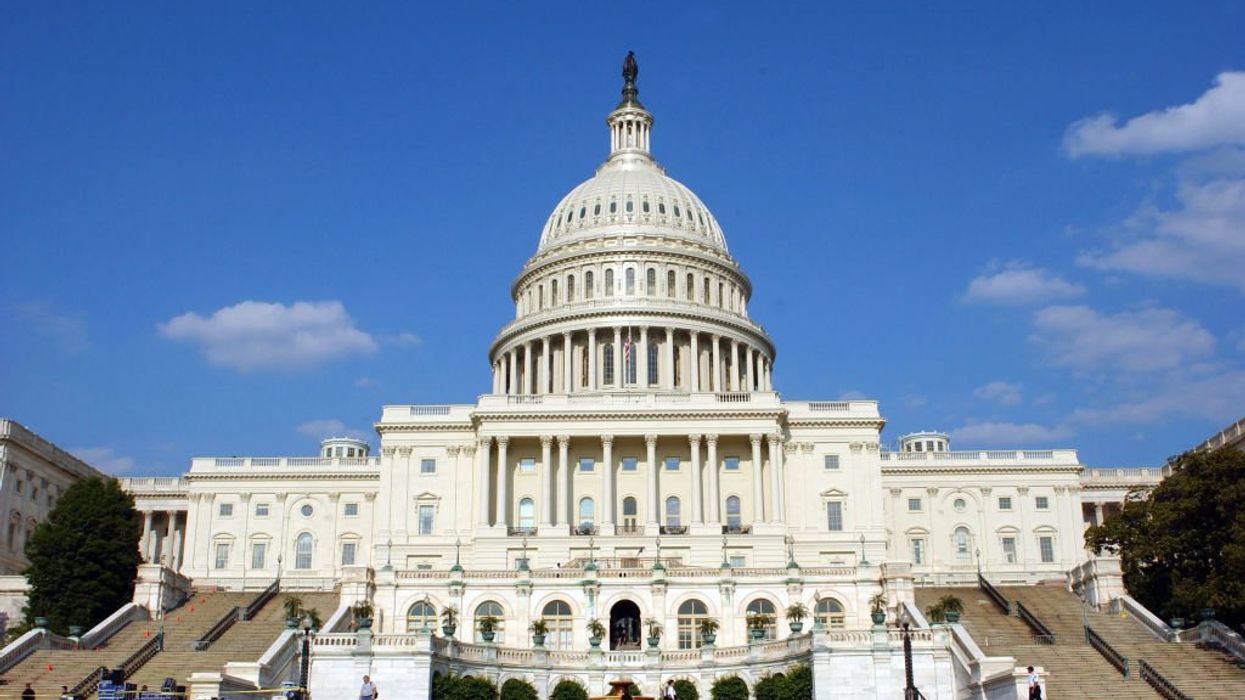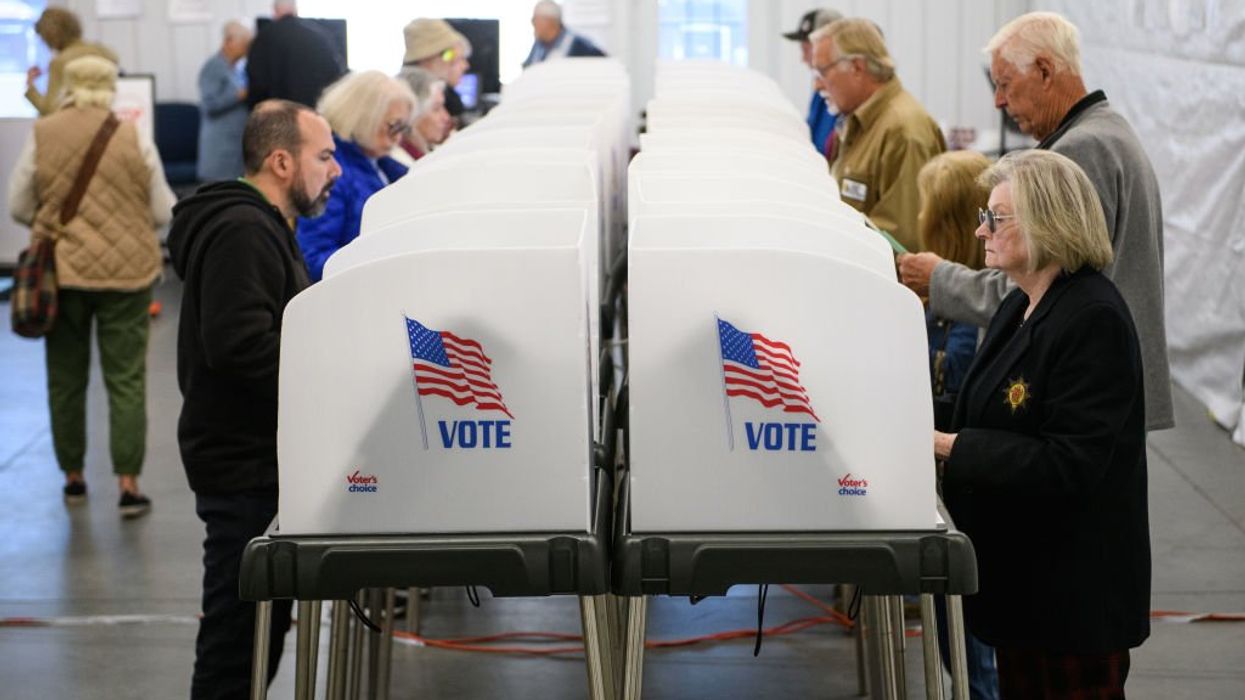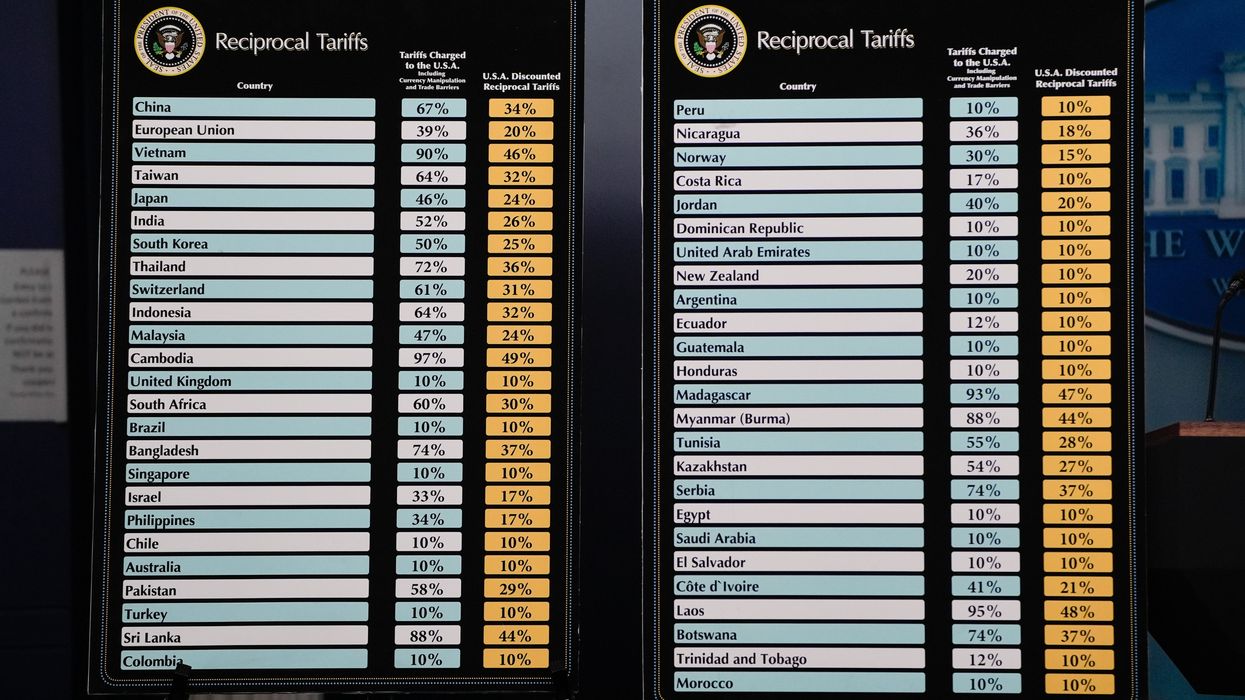On radio Thursday, Glenn was joined by David Barton and George Barna - a pollster and researcher on American culture. Glenn started by introducing seven cultural elements, which are required if you want to destroy or build a culture.
The Seven Mountains of Culture:
1. Business
2. Government
3. Media
4. Arts and Entertainment
5. Education
6. Family
7. Religion
Glenn said we've already lost all the mountains except for two - family and religion - but they too are clearly under attack.
"If we lose these two, we're done," Glenn said.
Then they discussed what can be done to preserve our culture by defending the principles our nation was founded upon. According to Barna's research, it starts with encouraging America's pastors to become better leaders by preaching about the important issues affecting American society today.
Listen or read the transcript below for more.
Below is a rush transcript of this segment, it might contain errors.
GLENN: I want to give you the seven mountains of culture. Business, government, media, arts, and entertainment, education, family, and religion. Those are seven mountains of culture. And if you want to destroy or build a culture, you have to have those seven mountains. We have lost the mountain of business. They don't even teach ethics anymore. We're not teaching moral sentiments anymore. We're just teaching raw capitalism. The best business schools in the country, when the professor stands up and says, "Okay, so here's your case study, was that good or bad, was that right or wrong? The hands go up and say, did it make money?" And so we've lost business.
We've lost government. The media, I don't know if we've ever had. Arts and entertainment, we've never had. Education is gone to us. The last two mountains of culture -- and if we lose these two, we're done. The family. It is absolutely under attack. And the last one is religion. And religion, I think at this point, is neutral. It could go either way. The same thing with the family. But it is certainly not a positive impact. And I will get into that here, just a bit with this amazing pollster and researcher on the culture, George Barna. And he's with the Barna Group. And he's a Christian polling firm that goes out and looks for what is affecting the culture. What is actually happening?
David Barton is joining us, because this actually started with a conversation we had, how long ago, David Barton?
DAVID: Oh, it's probably been about almost two months ago, Glenn.
GLENN: Okay. So we started having a conversation -- why don't you tell the story how we got here.
DAVID: Yeah, we were having a conversation, and you said, "We need to get people to get their pastors to preach about stuff. What do we ask them to preach about?" And I looked at you and said, "I don't have a clue, but I think I know someone who does." So I called George that night and said, "George, here's the deal. Glenn would like to have people ask their pastors to preach about certain things. What do people want to hear? What do they want to --
GLENN: Looking for leaders.
DAVID: Looking for leaders.
GLENN: In our pulpits.
DAVID: Yep.
GLENN: Because I contend they're not shepherds, they're sheep. They're afraid. Some of them don't know what to lead on. Most of them also don't know how to be active.
DAVID: Well, there's a difference between being a pastor and being a leader. There's a lot of pastors; there's just not a lot of leaders. And a lot of leaders -- one of the things I challenge pastors with now is, hey, if you announce on Sunday morning or Saturday morning, or whatever your service is, you announce you're shutting down your church, on Monday morning, will civic officials be lined up at your church saying, "No, don't leave. You're too valuable to the community. We can't have you leave. You offer too much good stuff." And most churches community would never know.
GLENN: What was the church I went to in Houston, Pat, for that funeral. What was the name of that?
PAT: Second Baptist.
GLENN: That church, because I talked to the city officials, they've said, "They've changed our community. They've changed our community."
DAVID: That's right.
GLENN: That church, if they close down, that church would have city officials --
DAVID: They would have city officials banging on the stage because there's too much value added. And that's leaders. Those aren't pastors. Now, he's a pastor, but he's a leader. And he's changed his community around him. Too many places of worship do not change their community.
GLENN: So, George, how did you put this polling together? How did you go out and conduct this? When you hear what the results of this poll are, it will blow you away.
GEORGE: Well, the first thing we did, Glenn, was we wanted to do some qualitative research, which means, rather than telling the people, these are the issues you can choose from, we simply asked them, "What are the things that are on your mind, on your heart? What do you want to hear about? Just give us a laundry list of whatever comes into your mind."
So we did that with 150 people across the country, and then we put together this exhaustive list and looked at I think it was 150 different issues that got mentioned. Then we took the ones that were toward the upper half of the list and said, okay, let's go out toward a larger more representative sample of people. Give them the list and ask them on a scale, which ones do you absolutely have to hear. So what we're going to be talking about are the ones where people said it was extremely critical or very critical.
GLENN: "Critical" was the word?
GEORGE: "Critical" was the word, where they said, "I need to know what -- not what my pastor thinks about this, but what does the Bible teach about this?"
GLENN: Okay. I want to start at number 13.
Number 13, the media influence on public, content responsibility, truth, moral standards, choices for exposure, and resistance.
DAVID: This is what they're asking their pastor to talk about.
GLENN: Right.
DAVID: This is unbelievable. I don't think a pastor has ever been asked to talk about media, but people are begging for that.
GLENN: And the media itself would dismiss any pastor talking about the media.
DAVID: That's right.
GLENN: Now, 70 percent of the sample said that is critical to talk about this.
GEORGE: Extremely or very critical for them to know about that. Now, I have to say, the sample that we talked to, these were conservative individuals who are religious. The vast majority of them are Christians.
GLENN: Yeah, I mean, we're asking churchgoers. Yeah, we're asking church people, what is it -- what do you want to have your pastor talk about?
Number 12, no pastor in America would say this is even in the top 20. Islam. The core beliefs, response to Islamic aggression, threat to peace and domestic stability.
GEORGE: Here you have a group of people coming to church week after week, they're not sure they know what their own faith is about. And then in the news, they're reading all kinds of conflicting reports about Muslims and Islam and Iraq and Iran. They don't even know where these places are on the map. And so there's all these kinds of issues that are swirling around in their head. They're crying out for somebody to help them make sense out of this, and not just from a news perspective, but from a biblical perspective because they want to serve God well. They're begging leaders to lead them in this arena.
DAVID: Three out of four want to hear that. Three out of four.
GLENN: Number 11, church in politics and the church in government, separation of church and state, legal boundaries, church resistance to government. 73 percent say that's critical that it is preached from the pulpit.
GEORGE: And once again, to them, they're coming into this whole arena completely confused. Because they're being told all the time, no, we shouldn't talk about these things in public. In a church, are you kidding me? Why would you do that, talk about politics and government? They think there's nothing in the scriptures about this. They think there's no reason to even bring this up. But they're saying, God must have a position.
GLENN: Number ten is self-governance, biblical support, personal conduct, impact on freedom, and national sovereignty. Maybe I've heard one church talk about this, you know. That David Barton wasn't speaking at. Where I've heard them actually get up and on a Sunday start teaching about our -- our self-governance and what it means for the -- the governance of the people of the United States.
DAVID: You know, if you want to be a hero, just get in front of the bandwagon, like you're the band director. Three out of four want to hear this stuff, just be a hero, start talking about what they want to hear about. I mean, this should be a no-brainer. In a self-governing country, you can't be a self-governing country without self-governing citizens, and we won't talk about that?
GLENN: Number nine is bioethics, cloning, euthanasia, genetic engineering, cryogenics, organ donation, and surrogacy, 76 percent.
Then eight, role in government, the biblical view, the church/state relationship, our personal responsibility and limitations. What's the difference between eight and ten, self-governance?
GEORGE: Essentially, people don't know the difference. They just know that there's so much wrapped around these issues that they want them covered in full.
GLENN: Because there's three of them. There's church in politics, self-governance, and the role of government.
GEORGE: Yeah. And when you look at something like self-governance, remember the kind of culture we live in where people are basically saying, "Don't tell me what to do." Here's a group of people saying, "Please tell me how I should behave."
GLENN: Don't you think this kind of goes to our kids. People say, "Don't -- let your kids be free." No, kids want boundaries.
GEORGE: And structure.
GLENN: And I think we as a people know we need structure. We need universal structure. We don't want to be told what to do or treated like children, but we do want to know, there are some eternal answers here. Why are we just making this up, and why isn't anyone teaching us this?
DAVID: We're into kids and sports. Tell me any sports that kids are involved with that doesn't have boundaries and that we don't teach them boundaries from the very start. Why don't we do that with the rest of life?
GLENN: Correct. Number seven is Christian heritage and the role of Christian faith and American history, the church role in the US development, and the modern day relevancy. This is you, David.
DAVID: And I get my brains beat in by people saying, "You can't talk about that in church." 79 percent of Americans want to hear this in church. And I'm seen as an extremist for doing this kind of stuff.
GLENN: Right. Now, let me go to the top six, because I think these are stunning. There's not a preacher in the country -- would you agree with that? You poll these people all the time. How stunning is the top six.
GEORGE: I had to go back and rerun the data to make sure that I didn't get something wrong in the program that ran the data because it was not what I expected.
GLENN: Here's number six. 81 percent -- sorry, 80 percent are saying that it is extremely critical or critical that their pastor, priest, or rabbi speaks about Israel, its role in the world, the Christian responsibility to Israel, US foreign policy toward Israel and its enemies.
You guys were on TV last night and I said, "I knew we're doomed as a country when I stood in front of the capitol building and there were maybe 3,000 people there, 4,000 people there, and there should have been --
DAVID: And that was the Iran rally.
GLENN: Yeah, that was the Iran rally. There should have been maybe 10,000 pastors there alone.
DAVID: Yeah.
GLENN: Where were the churches? Where were they? The answer, they don't know.
DAVID: Right.
GLENN: The people, they have no idea.
DAVID: But people want to know.
GLENN: Correct.
DAVID: And, by the way, it's worth pointing out on this, also in the poll, he found out that 33 percent of pastors said they talked about Israel, but only 24 percent of people said they heard their pastor talk about Israel.
GLENN: So what does that tell you, David?
DAVID: It tells me that the guys who think they're talking about it, don't talk about it very much. Or they made a comment in passing or they thought they made an illusion that somebody understood. 80 percent of people want to hear this. Pastors, 33 percent said, "Well, I talk about this." But only 24 percent actually heard them say something. Which means they're not communicating what they think they are from the pulpit to the people in the pews.












